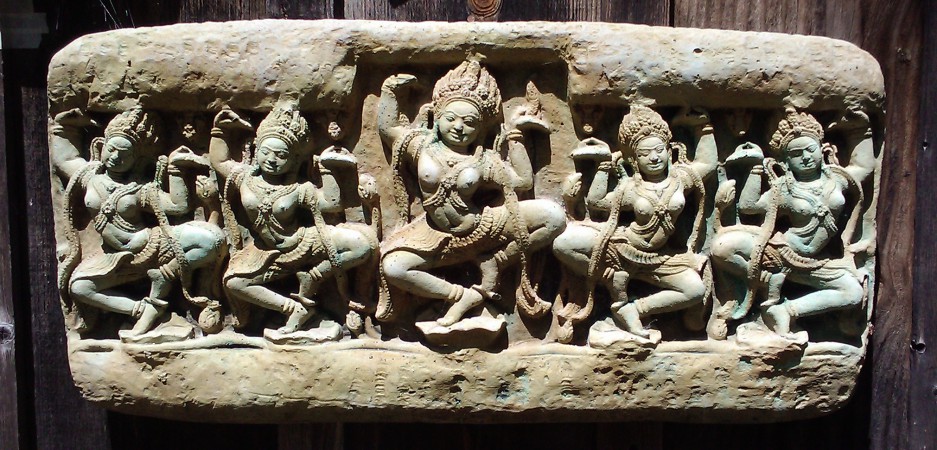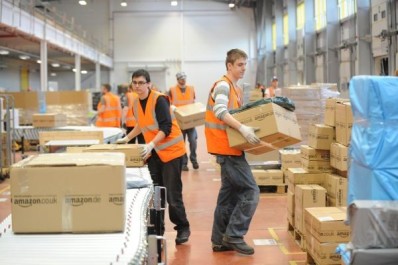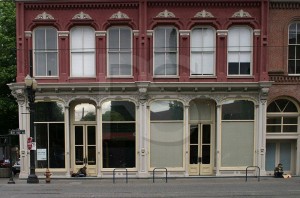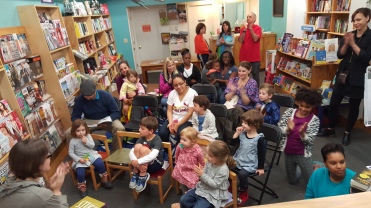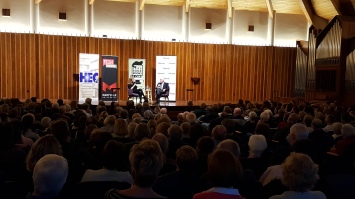Today, at around 11:30 am, as I sat working at my desk at home, windows open, birds chirping, a fifty-year-old woman two blocks away came out on the front yard of the four-family flat where she rented an apartment and began firing a pistol into the air and apparently sometimes into parked cars. Police were called. They arrived, and within a few short, confusing moments, shot her dead. I heard all the shooting. I thought it came from another direction. I did not hear sirens. At least I don’t remember the sirens. It is disturbing to me that I barely took note of the sound of guns being fired repeatedly. It is disturbing to me that I barely took note of whether or not first responders responded. The sound of gunshot is now as common to me as the sound of sirens, as the chatter of the birds in my backyard.
The woman was reported to be fifty years old. There are no more facts available to me, other than her landlord reporting that she had passed tenant screening just fine. But this morning, she was upset enough to go outside and shoot a gun. Over, and over, and over. She was upset enough that the arrival of uniformed officers did not persuade her to set the gun down. One moment, she was screaming her pain to the world. I was barely paying attention. The next moment she lay dead in her yard.
People shoot guns because they are angry, or afraid, or both. They shoot guns because the pain in them is exploding to get out. They often, in fact, most always, are shooting at either another person or themselves. In the case of our neighbor across the alley, our garage door proved sufficient, though it required frequent discipline, apparently. But this sort of inanimate target choice is rare. And it was only inanimate because my husband was not working in his workshop that lay on the other side of the aluminum door.
The anger could be fresh and appropriately targeted, say in an act of defense against an intruder. Or it could roil up from a long-suffered wound and spew, geyser-like at anyone unlucky enough to be in its way. Ditto for the fear. No one that I know of has done a comparative study of how many people thwart an attacker with a gun, versus how many people thwart anger/pain/grief/fear with a gun. No study that I know of has found the use of a gun effective in the latter.
And yet.
Pain. Grief. Grief. Pain. Shoot into the day, despair sitting on your neck like an albatross, the grief/pain/fear/anger miasma clouding your vision, choking your heart, pressing the very breath out of you.
What happens to a fifty-year-old woman to put her in her front yard shooting up the morning like it’s the 4th of July? And who will care? It is worth noting that she did not actually shoot at anyone, even though rumor has it she threatened to.
Here’s what was happening to me when I was a fifty-year-old woman living in the four-family across the street from where this woman was shot down in her yard, taking her story to the grave, full stop.
I was still grieving the end of a seventeen-year relationship (not married since queers were still illegal). I was trying to figure out how to stay in the life of the four-year-old I had become mother to two years before in a short-term and ill-conceived rebound relationship. My heart split daily at the thought I would lose that beautiful boy who called me mom. Mom. I was the sole person responsible for the care of my own mother in what was arguably the worst, and would be the final, two years of her life. I was working full time and wondering how I would adjust to the surprise departure of my new business partner who I thought would be taking a load off of me. I was hitting an early menopause hard. Oh, and 9/11 happened. I was alone for the first time in my entire adult life. And, brain cell by brain cell, I was losing the one person who loved me unconditionally. I had no support and I was sure I was doing everything wrong. A gun would have been what lawyers might have called an attractive nuisance. How attractive would it have been to silence the pain, empty the grief, forget about the fear, and let the rage, blind to the finer points of the social contract, solve my problems? One way or the other.
The fifth decade is when the rubber meets the road for women. Children, parents, partners who feel they need a change, and the test results of your lifestyle to date—it all swoops in like the flu and language serves no purpose. Hot baths, herbal tea, red hats, it can all go to hell as far as you’re concerned. When you are a fifty-year-old woman, you officially do not matter anymore. Can’t breed, not pretty, too smart to be subservient; you aren’t even sized up in the grocery store. You no longer exist. People walk right into you on a crowded sidewalk or at the mall. You just aren’t there. You don’t get waited on. There is not one woman over fifty who will challenge me on this.
But:
If you are a mother, you are expected to be there and fix all things.
If you have older parents, you are expected to be there and fix all things.
You are expected to buy the groceries, figure out the stuff, be on call for young and old alike, fix all the shit at work, whatever it is, but usually not for any appropriate recognition or pay.
Otherwise, feel free to roam about the cabin, but the bar is closed. Put on the hideous red hat, proclaim the end to your sexual being, and commence to overeat. Conversely, you could always get a gun. Missouri would like you to have it. Especially if you are a school teacher. Or really, anyone, say a deeply unhappy, bleeding from the heart, fifty-year-old woman. The Millennials may find a way to delay the selective downgrade a few more years, but the Gen-xers and we baby boomers are legion. We’re here, we don’t ovulate, and we don’t fucking care anymore. So yes, be afraid, be very afraid. But you might want to rethink the joke that is gun legislation. Because killing us just really complicates things for all the people who expect us to take care of them.
In the meantime, I weep for my doppelganger two streets over, who waits in a chilled morgue as I write this for someone, anyone, to speak her pain, to say her name. Rest in peace, my sister. Rest in peace.
———————————————————————————————————————————-
Update: Since I wrote this, the woman’s name was released., Robin White was reported to be battling bone cancer. The rest, offered by a nephew who wishes to remain nameless, is speculation.
